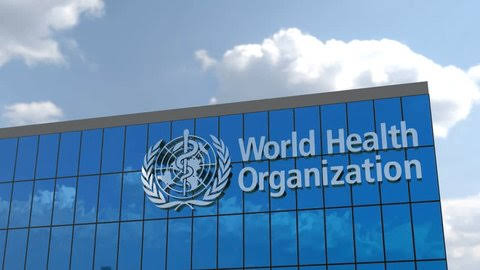Introduction: The Organs You Never Think About—Until There’s a Problem
Have you ever stopped to think about your kidneys today? Probably not. Yet, these two little bean-shaped organs are quietly working behind the scenes to keep you alive and well. From filtering your blood to helping control your blood pressure, the kidneys do it all—and they rarely complain.
In this post, we’ll take a deep dive into what your kidneys do, why they matter more than you think, common diseases, and how to protect them like your life depends on it—because it does.
Where Are the Kidneys Located?
Your kidneys sit at the back of your abdomen, one on each side of your spine, just below your rib cage. Each one is about the size of your fist, but don’t be fooled—they’re extremely powerful and hardworking.
Why the Kidneys Are So Important (And Underrated!)
Here’s what your kidneys do every single day:
1. Filter Your Blood
-
They filter around 50 gallons (180 liters) of blood daily.
-
Remove waste products like urea, ammonia, and toxins.
-
Clean blood is returned to the body, and waste goes out as urine.
2. Control Blood Pressure
-
They release renin, a hormone that manages your blood pressure.
-
If your kidneys fail, high blood pressure becomes a dangerous side effect.
3. Balance Water and Electrolytes
-
Maintain the right amount of water in your body.
-
Balance minerals like sodium, potassium, and calcium—key for nerves, muscles, and the heart.
4. Keep Your Bones Strong
-
By converting vitamin D into its active form (calcitriol), your kidneys help you absorb calcium.
5. Boost Red Blood Cell Production
-
They make erythropoietin, a hormone that tells your bone marrow to produce red blood cells.
-
Without it, you could become anemic and feel tired all the time.
6. Maintain pH Balance
-
Regulate your blood’s acid-base levels to prevent it from becoming too acidic or too alkaline.
Common Kidney Diseases (And What You Might Miss)
Many kidney diseases develop silently, showing no symptoms until it’s too late. Here’s what to watch out for:
✴️ Chronic Kidney Disease (CKD)
-
A progressive loss of kidney function.
-
Often caused by diabetes or hypertension.
-
Early signs: tiredness, swollen feet, foamy urine.
✴️ Kidney Stones
-
Hard crystals made from minerals and salts.
-
Causes sharp, stabbing pain in the lower back or side.
-
Prevention: stay hydrated and avoid excess salt or soda.
✴️ Acute Kidney Injury (AKI)
-
A sudden drop in kidney function—can be caused by infection, medication, or trauma.
-
Needs urgent medical attention.
✴️ Urinary Tract Infections (UTIs)
-
Starts in the bladder but can reach the kidneys if untreated.
-
Signs include burning urination, back pain, fever.
✴️ Polycystic Kidney Disease (PKD)
-
Genetic disorder that causes fluid-filled cysts to grow in the kidneys.
-
Can lead to kidney failure if unmanaged.
Surprising Facts You Didn’t Know About Your Kidneys
-
You can survive with just one kidney (which is why people can donate one).
-
The left kidney sits slightly higher than the right (to make room for the liver).
-
Kidneys filter about half a cup of blood every minute.
-
Painkillers like ibuprofen and diclofenac, when overused, can slowly damage your kidneys.
-
Some people don’t realize they have kidney failure until they need dialysis.
How to Keep Your Kidneys Healthy
Keeping your kidneys healthy doesn’t require fancy supplements. Here’s what you really need:
✅ Stay Hydrated: Aim for 2–3 liters of water per day unless a doctor advises otherwise.
✅ Eat Clean: More fruits and vegetables, less processed food. Avoid salty snacks, fast food, and instant noodles.
✅ Exercise Regularly: Walking, jogging, or any cardio improves blood flow to the kidneys.
✅ Avoid Excess Painkillers: Especially NSAIDs like ibuprofen, unless prescribed.
✅ Watch Your Sugar and Pressure: Diabetes and high blood pressure are the top causes of kidney damage worldwide.
✅ Quit Smoking and Cut Down Alcohol: They reduce blood flow and increase kidney disease risk.
✅ Get Screened: If you have a family history of kidney disease, diabetes, or high blood pressure, go for kidney function tests at least once a year.
Kidney-Friendly Foods to Add to Your Diet
-
Spinach (in moderation)
-
Apples
-
Blueberries
-
Broccoli
-
Salmon (rich in omega-3)
-
Watermelon (hydrating and kidney-friendly)
Final Thoughts: Don’t Wait for a Problem
Your kidneys won’t send a WhatsApp message when they’re in trouble. That’s why it’s your job to take care of them before they start to fail. By understanding how they work and what they need, you’ll be one step ahead in living a longer, healthier life.
Did you learn something new today?
Drop a comment, share with a friend, and bookmark this post—you might just save someone’s life.
Join our Whatsapp channel to stay updated always!
Click here to join our Whatsapp channel


